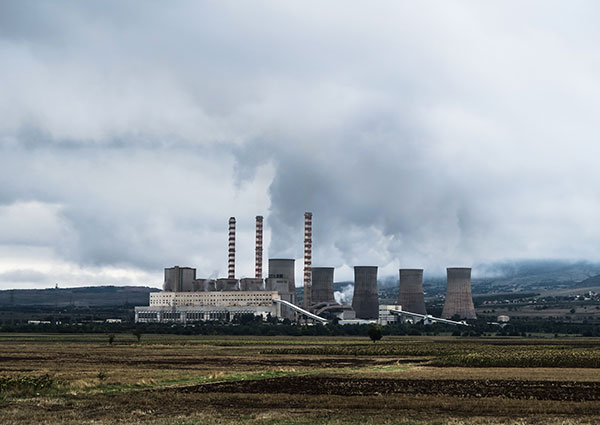Curriculum links
England
Mathematics
Statistics
Science
Working scientifically
Pupils should be taught to:
- present reasoned explanations, including explaining data in relation to predictions and hypotheses
Physics
Waves
Pupils should be taught:
- energy changes and transfers
Chemistry
Earth and atmosphere
Pupils should be taught about:
- the production of carbon dioxide by human activity and the impact on climate
Geography
Human and Physical Geography
Pupils should be taught to:
- understand how human and physical processes interact to influence, and change landscapes, environments and the climate; and how human activity relies on effective functioning of natural systems
- understand human geography relating to: population and urbanisation; international development; economic activity in the primary, secondary, tertiary and quaternary sectors; and the use of natural resources
Scotland
Numeracy and mathematics
Data and analysis
I can work collaboratively, making appropriate use of technology, to source information presented in a range of ways, interpret what it conveys and discuss whether I believe the information to be robust, vague or misleading. (MNU 3-20a)
- I can display data in a clear way using a suitable scale, by choosing appropriately from an extended range of tables, charts, diagrams and graphs, making effective use of technology. (MTH 2-21a / MTH 3-21a)
Science
Energy sources and sustainability
- I can use my knowledge of the different ways in which heat is transferred between hot and cold objects and the thermal conductivity of materials to improve energy efficiency in buildings or other systems. (SCN 3-04a)
- By contributing to an investigation on different ways of meeting society’s energy needs, I can express an informed view on the risks and benefits of different energy sources, including those produced from plants. (SCN 4-04a)
Wales
Mathematics
Skills
Communicate mathematically
Pupils should be given opportunities to:
- present work clearly, using diagrams, labelled graphs and symbols
Solve mathematical problems
Pupils should be given opportunities to:
- develop their skills of estimating and measuring
Range
Measures and money
Pupils should be given opportunities to:
- make sensible estimates of length, mass, capacity and time in everyday situations
Handling data
Pupils should be given opportunities to:
- use a variety of means to collect data in order to follow lines of enquiry or to test hypotheses, e.g. the internet, questionnaires, data collection sheets, experiment
Science
Skills
Communication
Pupils should be given opportunities to:
- search systematically for, process and analyse information for a specific purpose, including ICT as appropriate
- communicate logically by speech, writing, drawings, diagrams, charts, tables, bar charts, line graphs, videos and ICT packages using a wide range of scientific vocabulary, terms, symbols and conventions
Range
Interdependence of organisms
They should be given opportunities to study:
- how human activity affects the global environment, e.g. acid rain, greenhouse effect, and the measures taken to minimise any negative effects and monitor them
How things work
They should be given opportunities to study:
- technologies under development which may lead to more efficient use of energy resources or using them in new ways
Geography
Skills
Investigating
Pupils should be given opportunities to:
- analyse and evaluate ideas and evidence, answer questions and justify conclusions
Communicating
Pupils should be given opportunities to:
- develop opinions and understand that people have different values, attitudes and points of view on geographical issues
Range
Pupils should be given opportunities to:
- Study
- tomorrow’s citizens: issues in Wales and the wider world of living sustain-ably and the responsibilities of being a global citizen
Ask and answer the questions
- How can changes be sustainable and why is it important for this place/environment?
- How can my actions and those of other people make a difference locally, nationally and globally?
Northern Ireland
Mathematics - Mathematics with Financial Capability
Developing pupils’ knowledge, understanding and skills
Pupils should have opportunities, through the contexts below, to develop:
- a knowledge and understanding of handling data
Developing pupils as contributors to society
Young people should have opportunities to:
- analyse and interpret information patterns relating to local and global trends
Developing pupils as contributors to the economy and the environment
Pupils should have opportunities to:
- explore issues related to Education for Sustainable Development
Science
Developing pupils’ knowledge, understanding and skills
Pupils should have opportunities, through the contexts below, to:
- research scientific information from a range of sources
- learn about
- Forces and energy
- using electricity
- Earth and Universe
- the environment and human influences
Developing pupils as contributors to the economy and the environment
Pupils should have opportunities to:
- investigate the effects of pollution, and specific measures to improve and protect the environment
Environment & Society – Geography
Developing pupils’ knowledge, understanding and skills
Young people should have opportunities, through the contexts below, to:
- develop critical and creative thinking skills to solve geographical problems and make informed decisions develop a sense of place through the study of:
- issues of topical significance
- in order to develop an understanding of:
- the dynamic nature of physical and human environments
- the need for social, economic and environmental change to be sustainable
Developing pupils as contributors to the economy and environment
Young people should have opportunities to:
- explore how we can exercise environmental stewardship and help promote a better quality of life for present and future generations, both locally and globally
